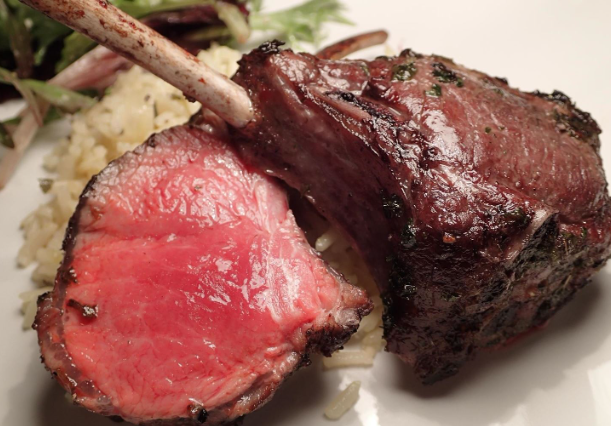Can You Over Smoke Meat? Understanding the Risks and How to Avoid Them
Smoking meat is a popular cooking technique that infuses it with a rich and smoky flavor. However, like any cooking method, there is a fine line between achieving the perfect smoky taste and overdoing it. In this article, we will explore the concept of over-smoking meat, the potential risks it poses, and provide tips on how to avoid over-smoking to ensure delicious and well-balanced results.

Can you over smoke meat?
1. What Does It Mean to Over Smoke Meat?
Over-smoking meat refers to the process of exposing it to excessive amounts of smoke for an extended period.
This can result in an overpowering and unpleasant smoky flavor that overwhelms the natural taste of the meat.
Over-smoking can also lead to a dry and bitter texture, compromising the overall quality of the dish.
2. The Risks of Over Smoking Meat:
Over-smoking meat can have several negative consequences:
-
Bitter Taste: Excessive smoke can impart a bitter flavor to the meat, making it unappetizing and overpowering other flavors.
-
-
Dry Texture: Prolonged exposure to smoke can cause the meat to dry out, resulting in a tough and chewy texture.
-
-
Creosote Buildup: Creosote, a byproduct of burning wood, can accumulate on the surface of the meat when over-smoked. This black residue has a harsh taste and can make the meat unpalatable.
-
-
Wasted Ingredients: Over-smoking can ruin expensive cuts of meat, leading to a disappointing culinary experience and wasted ingredients.
-
3. Factors Contributing to Over-Smoking:
Several factors can contribute to over-smoking meat:
-
Excessive Smoke Production: Using too much wood or charcoal, or using woods with a strong and intense flavor, can generate an excessive amount of smoke.
-
-
Lengthy Smoking Time: Leaving the meat in the smoker for too long without proper monitoring can result in over-smoking.
-
-
Lack of Temperature Control: Inadequate temperature control in the smoker can lead to prolonged exposure to smoke, increasing the risk of over-smoking.
-
4. Tips to Avoid Over Smoking Meat:
To prevent over-smoking and achieve perfectly smoked meat, follow these tips:
-
Choose the Right Wood: Opt for milder woods like fruitwoods (apple, cherry, or peach) or hardwoods like oak or maple. These woods provide a balanced smoke flavor without overpowering the meat.
-
-
Soak Wood Chips: Soaking wood chips or chunks in water for 30 minutes before adding them to the smoker can help control the release of smoke and reduce the risk of over-smoking.
-
-
Control Smoke Production: Use a smaller amount of wood chips or charcoal to regulate smoke production. Remember, it's better to start with less smoke and add more if needed.
-
-
Monitor Smoking Time: Keep a close eye on the meat while it's smoking and follow the recommended smoking time for the specific cut of meat you are cooking. Avoid leaving the meat unattended for too long.
-
-
Maintain Proper Temperature: Ensure your smoker maintains a consistent temperature throughout the smoking process. This helps prevent prolonged exposure to smoke and minimizes the risk of over-smoking.
-
-
Use a Meat Thermometer: A meat thermometer is essential for monitoring the internal temperature of the meat. It helps ensure the meat is cooked to the desired level without the need for excessive smoking.
-
-
Practice Patience: Give the meat enough time to absorb the smoke flavors but avoid overdoing it. Patience is key to achieving a well-balanced smoky taste.
-
5. Testing for Desired Smokiness:
To determine if the meat has reached the desired level of smokiness without over-smoking, consider the following:
-
Visual Inspection: Look for a rich, golden brown color on the surface of the meat. It should be evenly smoked without any signs of excessive browning or charring.
-
-
Aroma: The meat should have a pleasant smoky aroma that enhances its natural flavors. If the smell is overpowering or acrid, it may indicate over-smoking.
-
-
Taste Test: Take a small sample of the meat and taste it. The smokiness should complement the meat's flavor without dominating it. If the smoky flavor is too intense or bitter, it may indicate over-smoking.

Over smoke meat at home
While smoking meat can add an incredible depth of flavor, it's important to be mindful of the risks of over-smoking. By understanding the concept of over-smoking, recognizing the signs, and following the tips provided, you can avoid the pitfalls of excessive smoke and achieve perfectly smoked meat that is flavorful, tender, and balanced. Remember, moderation is key, and a balanced approach will ensure a successful and enjoyable smoking experience.